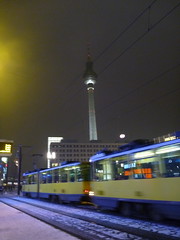A week after the 26th Chaos Communication Congress and I find myself looking back at the issues, the people, the presentations, the ideas.. everything that was being thrown around and shared during that amazing gathering of hackers from around the world. I sit at the computer working on a larger write-up about the hackerspace movement, which has taken root not only in the west, but on every continent in more countries than I ever believed possible.
 Besides all the great ideas and the very talented and fun individuals taking part in this event, what I find most interesting is that whether it be through annual events or permanent creative spaces, this community feels more and more open and engaged with other communities in society. From science, to art, to politics, or history… the list of intersection and cooperation with the hacking community continues to grow. A development which I would describe as positive when compared to being an isolated, ignored, or intimidated group of thinkers.
Besides all the great ideas and the very talented and fun individuals taking part in this event, what I find most interesting is that whether it be through annual events or permanent creative spaces, this community feels more and more open and engaged with other communities in society. From science, to art, to politics, or history… the list of intersection and cooperation with the hacking community continues to grow. A development which I would describe as positive when compared to being an isolated, ignored, or intimidated group of thinkers.
For the past 4 years I’ve wandered around these congresses and marveled at everything around me. Above all at how much individuals can create together, without a profit motive, out of sheer interest and curiosity (and maybe some bragging rights). They take this massive bland building, and they make it into a living, breathing organism that functions in a very efficient and exciting manner.
Looking at all the banners and listening to all the languages being spoken, it seems more clear than ever that hackers have entered a new era where they are not afraid of being judged, and will not be shamed because of their interests and abilities. It begins perhaps, as it has for many minority groups in history, with taking back their word that was twisted into something derogatory – hacker. And it continues with the establishment of creative spaces, all over the world, where people can meet and work on their projects.
It’s safe to conclude that at 26C3 last week, I was watching history be made…. again.


 John Aravosis is annoyed. For him and millions of Obama supporters who believed in the campaign that swept the current president into office, there is a great feeling of disgust with what has happened over the past year. What happened? On issue after issue, causes that were very clearly indentified as goals once Obama got into office, the white house has backed down. As John breaks it down, they don’t even back down, they simply do not fight, despite having said they would.
John Aravosis is annoyed. For him and millions of Obama supporters who believed in the campaign that swept the current president into office, there is a great feeling of disgust with what has happened over the past year. What happened? On issue after issue, causes that were very clearly indentified as goals once Obama got into office, the white house has backed down. As John breaks it down, they don’t even back down, they simply do not fight, despite having said they would. As I pushed open the big red door at the back of a very average looking church, I made my way quickly up the stairs to avoid questions from security or random people in the hallway. Several steps and doors later, I see the sign I’ve been looking for: HacDC, Washington DC’s first hacker space. As I reach for the door I picture a huge room with computer parts everywhere, funny robots designed by creative minds, and a few people hanging out on a Thursday afternoon typing away on their laptops. But after attempting to push he doors opened and knocking, it became obvious not only that the place was locked, but that no one was home.
As I pushed open the big red door at the back of a very average looking church, I made my way quickly up the stairs to avoid questions from security or random people in the hallway. Several steps and doors later, I see the sign I’ve been looking for: HacDC, Washington DC’s first hacker space. As I reach for the door I picture a huge room with computer parts everywhere, funny robots designed by creative minds, and a few people hanging out on a Thursday afternoon typing away on their laptops. But after attempting to push he doors opened and knocking, it became obvious not only that the place was locked, but that no one was home. I arrived this afternoon in Washington, DC, opting for the more affordable bus over the railroad. It had me thinking about the news this week out of one of my favorite regions in the world, the Balkans. The rail link between Belgrade and Sarajevo, broken ever since civil war over 18 years ago,
I arrived this afternoon in Washington, DC, opting for the more affordable bus over the railroad. It had me thinking about the news this week out of one of my favorite regions in the world, the Balkans. The rail link between Belgrade and Sarajevo, broken ever since civil war over 18 years ago,